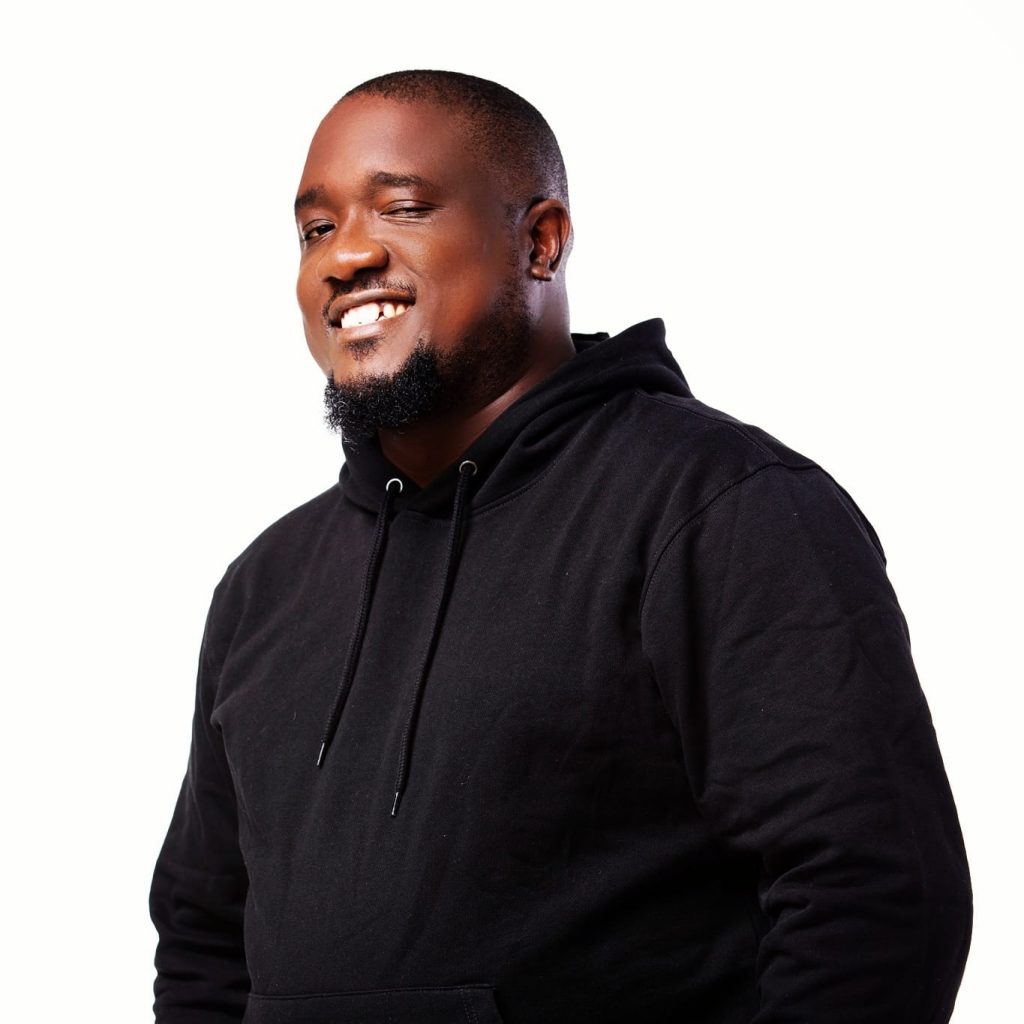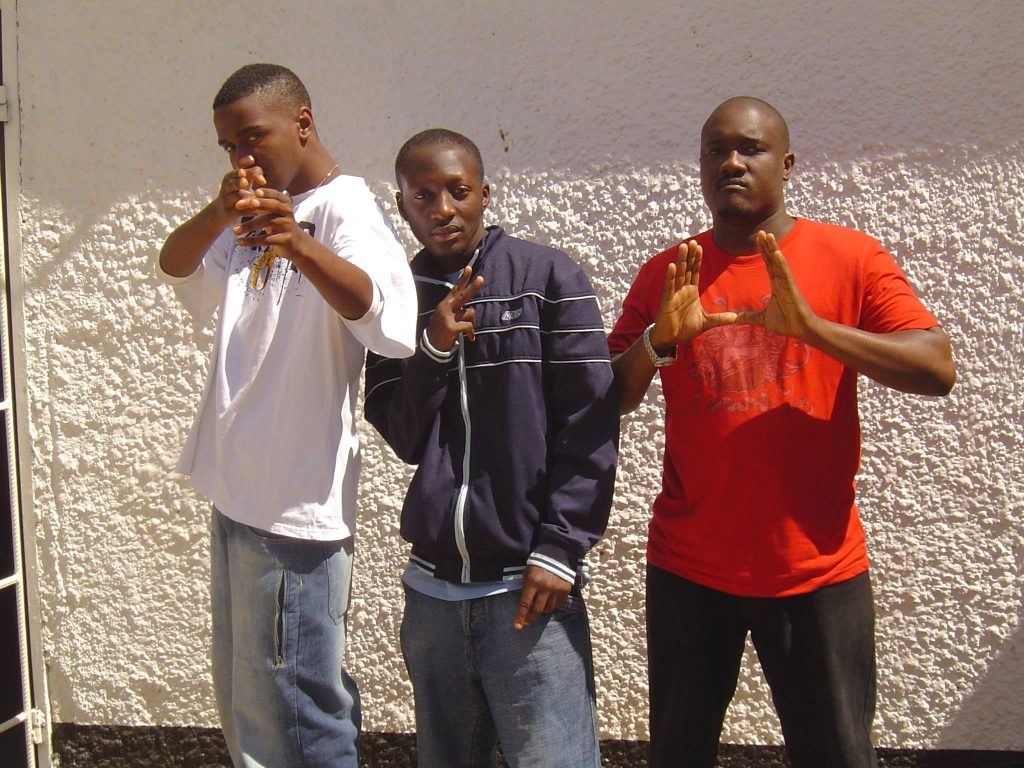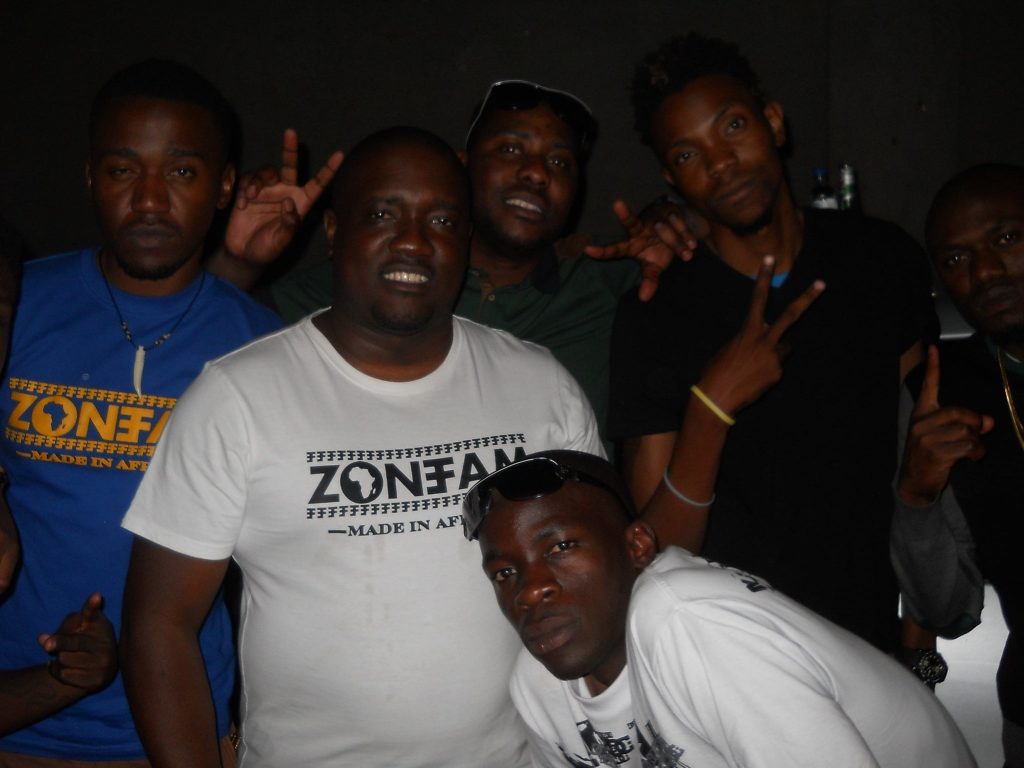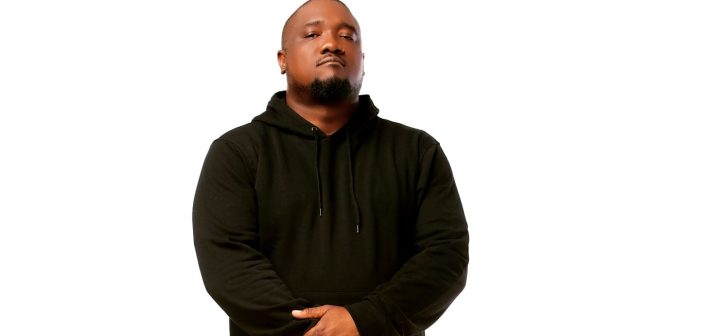Music has been taunted as a universal language; regardless of the language it is delivered in, the artists leaves the appropriate emotion in the music. There are songs you’ve listened to without understanding a word, yet, somehow, you could get goosebumps, sad, teary, happy/jubilant, or calm; depending on the artists emotions while creating it.
Not to long ago, I shot a shot via twitter DMs to a Zambian Ol’G; in all honesty, I was expecting a response a couple of days or weeks later. I was surprised when the notification came in 5minutes or less. Opened it and well, here we are with this article.
Duncan Sodala known as Holstar or The Holstar Music in the Zambian hip-hop space is an emcee, music and video producer, artist manager, and executive producer. He made his debut on the Zambian hip-hop stage in 2005, cofounded and managed one of Zambian’s most successful and award-winning rap group, Zone Fam.
He currently boasts over 15 projects – solo and joint – in his 14-year career and has worked with artists and producers across the globe. He has an executive producer credit on Zone Fam‘s debut LP, The Business (Foreign Exchange), which features their hit single, Shaka Zulu on ’em.

Give us a look into your world as a young Zambian Kid. Before the Music
I get asked this question a lot. Well, I grew up in a household where there was a lot of music. I listened to different genres of music – I’m the last born in a family of 5 children.
Dad played a lot of Country Music – Jim Reeves, Kenny Roger, my brothers and sisters were into RnB, Hip-hop, and Gospel. I remember my mum playing Barry White, she also loved Reggae. I had an uncle that would sing hymns with me; he taught me how to harmonize.
Music was always around me, and I appreciate that upbringing. It really made me love music, study music, and study people. I grew up watching a lot of music shows and music videos on the Beam, VH1, MTV, Channel O back in the ’90s. It was a fun childhood and music made it really awesome!
Let’s talk about your first encounter with hip-hop; How you groomed your interest in hip-hop; writing raps; and when you realised hip-hop was going to be your thing
My early encounter with hip-hop was in the late ’80s; I remember listening to artists like Kurtis Blow with his Basketball song. I also remember artists like Bobby Brown rapping in his RnB songs. That was basically my early encounter with hip-hop. I fell in love with it in 1993 when I heard Snoop Dogg’s DoggyStyle album. I know I was a kid and shouldn’t have been listening to that album because it was pretty intense! I started learning about rap, memorizing songs like Lodi Dodi word for word.
Then in high school, I got to perform on stage! My friends and I formed a group called the Z-Crew. At that point, I would get rhymes from different songs – put in a line from here, a line from there – perform on stage, and your classmates and peers are going crazy, cheering…I was like wow! This is something…this is cool! A crowd was responding to me performing on stage, it hits different.
I remember being in school variety shows with my friends and we always came second or something like that. [laughs]I don’t remember us winning any competition, but then, that’s another story.
I tried writing rhymes sometime in high school, then a friend caught me doing it, and was like “Yeah, yeah. Keep doing it” he was encouraging me to write. I was into poetry in high school.
I remember filling up someone’s school diary book with lyrics because they thought I was talented and loved the way I put words together [chuckles]. I wonder if that person still has that book? But anyway, that was kinda when it really started, you know, high school!
Apart from that – I used to delve into R&B. I’m a big Jodeci fan! I listened to all sorts of R&B and hip-hop. Eminem in the late ’90s, DMX, Big Pun, WuTang, Nas, Biggie, are the Rappers I grew up listening to. I was a HUUUGE 2Pac fan – really huge; to the extent of doing a school drama project on 2Pac.

Upon deciding to give your all to hip-hop, what were the challenges you faced in the industry and how you pushed in order to be heard.
Financial challenges! I had to pay for the studio time, and I wasn’t working… I think I had just started a little job then, so I had to save up for the session.
Over time, I learnt that it was cheaper to own your equipment in the long run. I think I was always into, you know, ‘Trying get my own equipment’ and I remembered longing to own my own condenser mic… It actually took me years to own one, and when I finally had one, through my friendships with producers, I learnt how to record. I even delved into beat-making. I produced a couple of songs for myself. I wish I didn’t stop at beat-making. I produced my own videos as well.
Learning to record and make beats has helped me in recording the eps and albums I’ve released so far, then I send it for mixing and mastering by a professional. All in all, I am someone that keeps knocking on different doors until they start opening.
Which project pushed you into the mainstream? Which relationship or burned bridge made that possible?
Going mainstream would be as the manager of Zone Fam. I think it was after The Business (Foreign Exchange) album was released, I was also the Executive producer. Relationships with DJs like Drex – who helped us on the come up, DJ Scratch…they were really supportive. People like Fanatik –Daniel, Mumba… There are a lot of names, and there are some people who I’m missing out {chuckles]. I hope they forgive me!
Then again, a lot of people really helped put this all together. Fans! People like Wezi, who is now a big artist in her own right, for example, was a huge Zone Fam fan. Jayman – Jeremy (Chibuye) who now runs a big Zambian website called Mvesesani was like Zone Fam’s manager in the Copperbelt. Websites like African Hip-Hop blog; I’m so sad it’s not here right now, but they always posted our material.
Afro-MP3 was run by a gentleman by the name of Mutsai Musa. Ameyaw Debra in Ghana. NY DJ in Ghana, DJ Edu, DJ Larrizle – There are so many people whose names I can throw out there, who helped in putting everything together. Zone Fam becoming a success, and me being the manager and communicating with all these people… It was life-changing.
What I learned from that experience is what I apply into my career as a solo artist, as I continue to build my brand.

What were the most shocking discoveries you made about the industry in Zambia that should be abolished, changed or continued?
I feel people do need to sort out the issue with royalties. A lot of Zambian artists don’t understand royalties and publishing, and other sources of revenue aside from performance fees. People are still unaware of how they can make money in this industry, and I feel certain things need to be sorted out.
Piracy is deep, it’s still pretty deep. There are people that steal music and sell it on the streets in flash drives and CDs when it should be money that’s going into the artists’ pockets.
People copy artists’ works and upload them on YouTube. There are people who literally rip albums and upload them to MP3 websites, and artists are losing revenue that way – it’s shocking! Artists put in a lot of work to put their projects together, only for them to be ripped and pirated. It’s just sad.
Lastly, walk us through your transition from a playa to an OG. Your new vision for the industry and works you’re doing in efforts to empower young Zambian emcees in pursuit of their dreams (in and/or outside the hip-hop industry)
People use that word a lot when addressing me, OG! Yes, I’ve been releasing music since 2005, but I consider myself an artist that is only just getting started.
I feel like I’m finding my footing now, especially since I was a manager for a couple of years. I won’t take away from people calling me OG. It’s all good, but I still have a lot to offer! Sometimes it feels like the tag OG means you’re at an end, but I feel like I’m at the beginning of something new.
A couple of years ago, I saw artists making a living from their music, and believe me, they’re doing that right now! I’m seeing hip-hop artists getting endorsements, they’re getting proper record deals, from new labels in the country; like Nexus, and Kalandanya.
The next step is for them to go beyond our borders, go beyond our continent, win more awards, collaborate more with people out there, make new strides… I want to see – especially the local Zambian artists – out there like what Sampa the Great is doing. She’s very much our leader right now. I’d like to see more Zambian artists at the level where Sampa is right now and even further.
I try in my own way to help the growth of young artists and producers through collaboration; I have been doing cyphers for 2-3 years now, reintroducing old and introducing new artists. I recently dropped the Zamrock Cypher. I’m the only OG [chuckle]on that among these young talented guys; even more talented than I am, and I want people to know about them.
I keep working with young people on my music; production, vocals, or visuals. I love working with young people, and I want to do more, so I keep on exploring different avenues.
HOLSTAR’S SOLO DISCOGRAPHY
| TITLE | JOINT FEATURE | RELEASE YEAR |
| Versatile (EP) | – | 2005 |
| Intellectual Property (LP) | – | 2006 |
| Intellectual Property II (LP) | – | 2006 |
| Holstar and Pope Mixtape | Pope | 2007 |
| H3 ~ Love Me or Hate Me (LP) | – | 2009 |
| Six Sixteens (Mixtape) | – | 2010 |
| Extraordinaires (LP) | Teck-Zilla | 2012 |
| Universal Language (LP) | Poison Hertz | 2013 |
| God Life City Time (EP) | – | 2014 |
| Family Love Country Passion (EP) | – | 2014 |
| Beast Meets A Problem (EP) | Rocbeats | 2015 |
| Dreaming In High Definition (LP) | – | 2017 |
| Petrichor (EP) | – | 2018 |
| Africore (EP) | – | 2018 |
| Kupeleka Nyali Ya Moto (LP) | – | 2020 |
| African Diamond | Dominant 1 | 2021 |
| Throwbacks and Outbreaks | Ariel | 2021 |
ZONE FAM DISCOGRAPHY
| TITLE | JOINT FEATURE | ROLE | YEAR |
| The Full Script (Mixtape) | Teck-Zilla | Founding Member | 2010 |
| The Business (Foreign Exchange)[LP] | – | Executive Producer | 2011 |





1 Comment
Pingback: Rhyme & Reason® – New Music: Masters Of The Universe - Holster & Phillip Mweemba